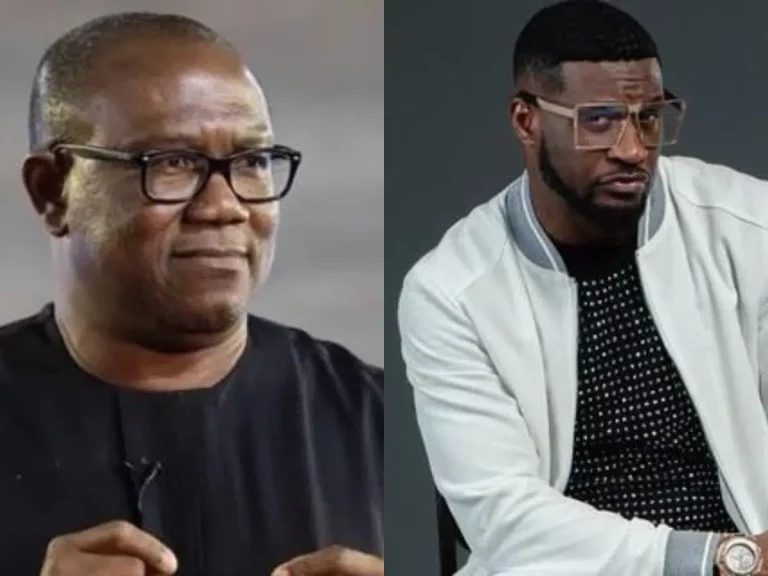Peter Okoye of the singing duo P-Sqaure prompted criticism with his reckless denigration of Nigeria’s music legend, Fela Anikulapo Kuti, by describing his Afrika Shrine, a site that played host to his live entertainment shows, as ‘local’ and incomparable to his self-acclaimed lofty music achievements.
The twin, who is a staunch supporter of Obi, the Labour Party presidential candidate, and who has targeted other artists, especially those from the Yoruba southwest region, over their non-support for his preferred candidate, conveyed the insult in a riposte to Seun Kuti, one of Fela’s sons.
Seun Kuti had encouraged Nigerians in an Instagram Live session to refrain from casting any of the candidates in the presidential contest as a ‘savior’, adding that only Nigerians, not the elected president, can save the country.
Although Seun expressed no partisan bias in his message, Peter Okoye understood it as a slight on the Obidient movement and took to insulting the Afrobeats singer in a long rant. He denigrated his looks, accused him of an addiction to banned substances, and claimed that he owed his relevance to his last name.
Controversially, Okoye mocked Fela’s Afrika Shrine, kept running by Seun and his siblings to honour their father’s legacy, as ‘local’ and a relic of a forgone past. The claim, and others, sparked outrage amongst Nigerians who defended the cultural and symbolic importance of the entertainment arena, adding that it staged some of the most powerful acts of political activism, defense of human rights, and preservation of democracy.
They also highlighted Seun Kuti’s unique contributions to the Afrobeats genre, including performance on the biggest stages in the world, to dismiss Okoye’s allegation that he relied solely on his last name for relevance.
Okoye’s attack came months after other Obidients, mostly of Igbo origin, attempted arson by trying to set the Afrika Shrine on fire after Femi Kuti, another of Fela’s sons, denied supporting Peter Obi or any other candidate in the 2023 presidential election.
For many, it exemplified the ethnic dimension to Obi’s support in which his fellow Igbos, seeing the former Anambra governor’s ambition as an opportunity to secure political dominance over the country, have resorted to intimidation, blackmail, and other dark tactics to forcefully extract support.
Obi himself has voiced divisive rhetoric, mostly targeted against the Yorubas, including a widely-criticized claim that the southwesterners were wary about supporting him over the suspicion that his emergence would finally stamp the superiority of the Igbos over them.
Control of Lagos, the commercially successful coastal city in the southwest region, has also been a point of contention. Igbos have denied the Yoruba origin of the city-state, with refuted claims that it is a “no man’s land”. They have also threatened to make good the claim once their kinsman gains the power of the presidency.
Recently, Igbo traders in the Alaba International Market restricted access to Yoruba traders for arbitrary reasons, including failure to obtain their PVCs and a declared commitment to elect Peter Obi.

